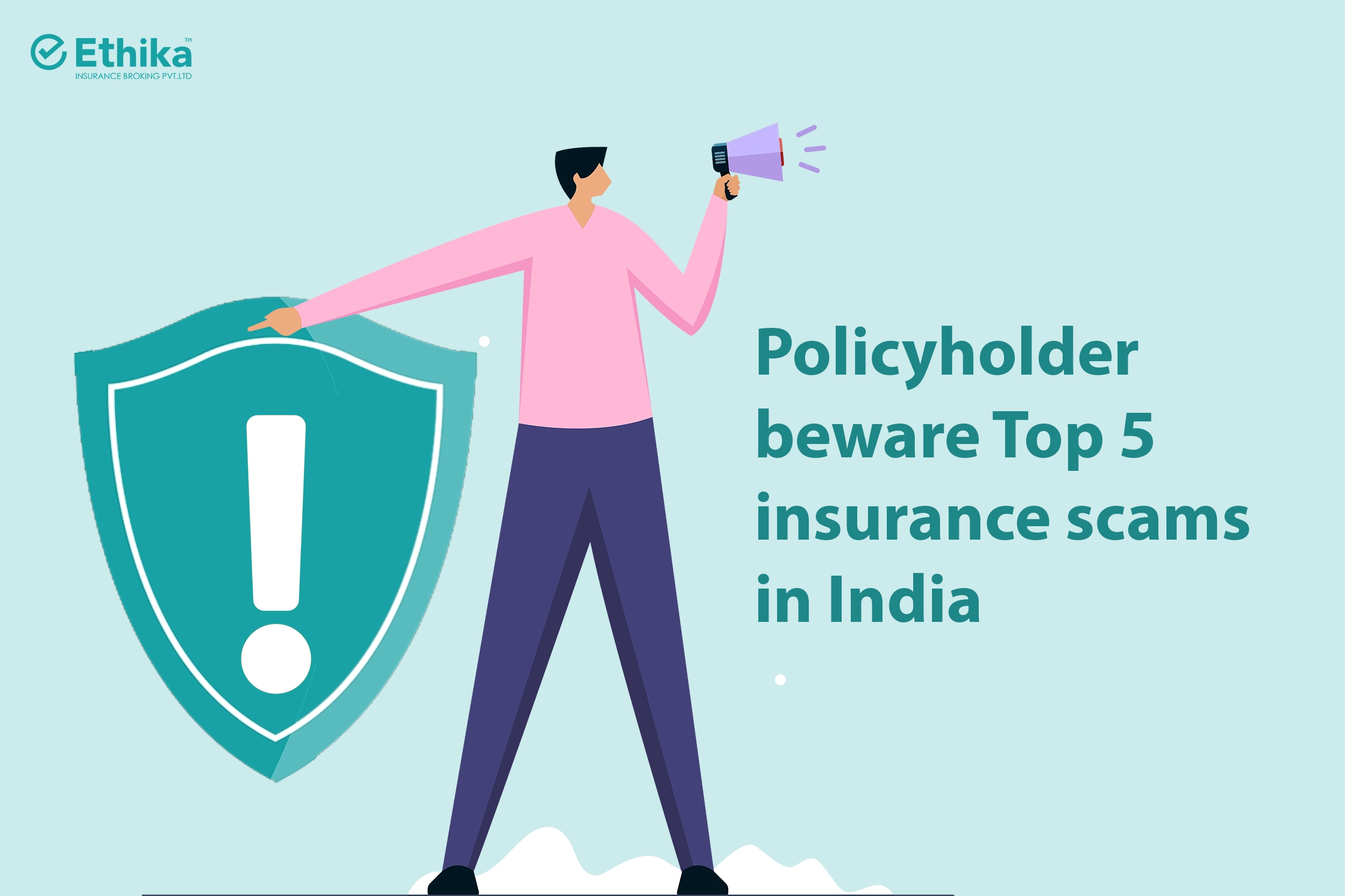
In this Blog
- Policyholders Beware: Top 5 Insurance Scams in India and How to Protect Yourself
- Who’s Most Vulnerable to Insurance Scams?
- Top 5 Insurance Scams in India
- How the Internet is Fueling Sophisticated Scams
- How to Protect Yourself from Insurance Scams
- Frequently Asked Questions on insurance scams in India
What’s on this page?
Policyholders Beware: Top 5 Insurance Scams in India and How to Protect Yourself
In today’s digital landscape, insurance scams have taken on new dimensions, evolving with technology and targeting unsuspecting policyholders across India. These scams often exploit vulnerable groups, such as retirees, uneducated individuals, and new internet users. Staying informed about these scams is crucial to safeguard yourself and your loved ones.
Who’s Most Vulnerable to Insurance Scams?
Fraudsters frequently target those who may have limited experience with digital security:
- Retirees and Senior Citizens: Often, elderly individuals with life savings are targeted, with fraudsters posing as legitimate agents offering high-return plans.
- Uneducated or Less Technologically Aware Individuals: These individuals may fall prey to complex fraud schemes or phishing tactics.
- New Internet Users: With the increased accessibility of the internet, people unfamiliar with online scams are more likely to trust unverified sources.
Top 5 Insurance Scams in India
- Digital Fraud and Data Breaches
Cybercriminals often exploit personal information obtained through hacking or data breaches. For example, the recent breach at a major insurer exposed the data of over 30 million customers. Fraudsters can use this data to pose as legitimate agents and deceive individuals into purchasing fake policies.
Case Example: In a 2024 case, a retired government officer lost his life savings after responding to a phishing email claiming to offer a “special pensioner insurance policy.” The fake policy collected monthly payments but offered no real coverage. - Fake Insurance Policies
Scammers set up websites or contact customers posing as agents from legitimate companies, selling counterfeit policies. This is particularly dangerous as the policyholder remains unaware until a claim is denied.
Case Example: A small business owner from Gujarat discovered his policy was fake only after a fire claim was rejected. The fraud involved a rogue agent, an unauthorised website, and fake documents that resembled official policy paperwork. - Misrepresentation of Policy Terms
Misleading or withholding policy information is a common scam tactic. Some agents, in a rush to close sales, downplay exclusions or embellish coverage. This can leave policyholders without the protection they thought they had.
Vulnerable Groups: First-time buyers and elderly policyholders are particularly susceptible as they rely on agents for policy clarity. - Phishing and Vishing Scams
Phishing emails and vishing calls (fraudulent voice calls) are on the rise, especially targeting senior citizens and first-time internet users. Fraudsters pose as company representatives to extract personal details under the guise of “policy updates” or “required verifications.”
Case Example: A retired teacher lost ₹5 lakh after responding to a call claiming that her life insurance policy needed an urgent premium update. She provided her bank details, which were later used for fraudulent withdrawals. - Fraudulent ClaimsFalse claims damage the entire insurance system, leading to higher premiums for all policyholders. Fraudsters may exaggerate damages or even stage accidents. While insurers work to identify these claims, genuine policyholders may suffer premium hikes due to these activities.
How the Internet is Fueling Sophisticated Scams
The internet has transformed insurance access, making it easy to research, compare, and purchase policies. However, this convenience also enables fraudsters to exploit digital loopholes, often by creating fake websites that appear official or through sophisticated phishing schemes that target new internet users.
As internet penetration in India increases, fraudsters gain more potential victims. The recent shift to online services has also led to a surge in cyber insurance scams, where criminals sell “cyber protection” policies without real coverage, preying on businesses and individuals who want to safeguard their data.
How to Protect Yourself from Insurance Scams
- Verify Before You Buy: Check the authenticity of the agent and company through official websites or by calling customer service directly.
- Be Cautious with Personal Information: Avoid sharing personal or financial details over the phone or email unless you are sure of the recipient’s legitimacy.
- Understand Policy Terms Thoroughly: Read the fine print and ask questions. Insurers are obligated to provide clear and understandable information—don’t hesitate to demand it.
- Report Suspicious Activity: If you encounter a suspicious agent or offer, report it to the insurer and relevant authorities to protect others.
Staying informed is the best defense against the evolving landscape of insurance scams. By understanding how these scams operate, who is most vulnerable, and what precautions to take, you can protect yourself and others from falling victim.
FAQs:
How can I verify if an insurance agent is legitimate?
You can verify an agent’s credentials by visiting the insurance company’s official website or calling their customer service. Many insurers provide agent verification tools on their websites.
What should I do if I’ve already purchased a fake policy?
Report it to the local police and inform the insurer. They may not be able to reimburse your loss, but reporting helps in preventing future scams.
Why do insurance companies reject some claims?
Claims can be denied due to policy exclusions, misrepresentation of facts, or incorrect documentation. It’s important to understand your policy terms to avoid unexpected claim rejections.
Are there official channels to report online insurance scams?
Yes, you can report cyber fraud on the National Cyber Crime Reporting Portal (cybercrime.gov.in) or approach the Insurance Regulatory and Development Authority of India (IRDAI).
Are older individuals more vulnerable to insurance scams?
Unfortunately, yes. Senior citizens are often targeted because they may have significant savings and may not be as familiar with digital security measures.